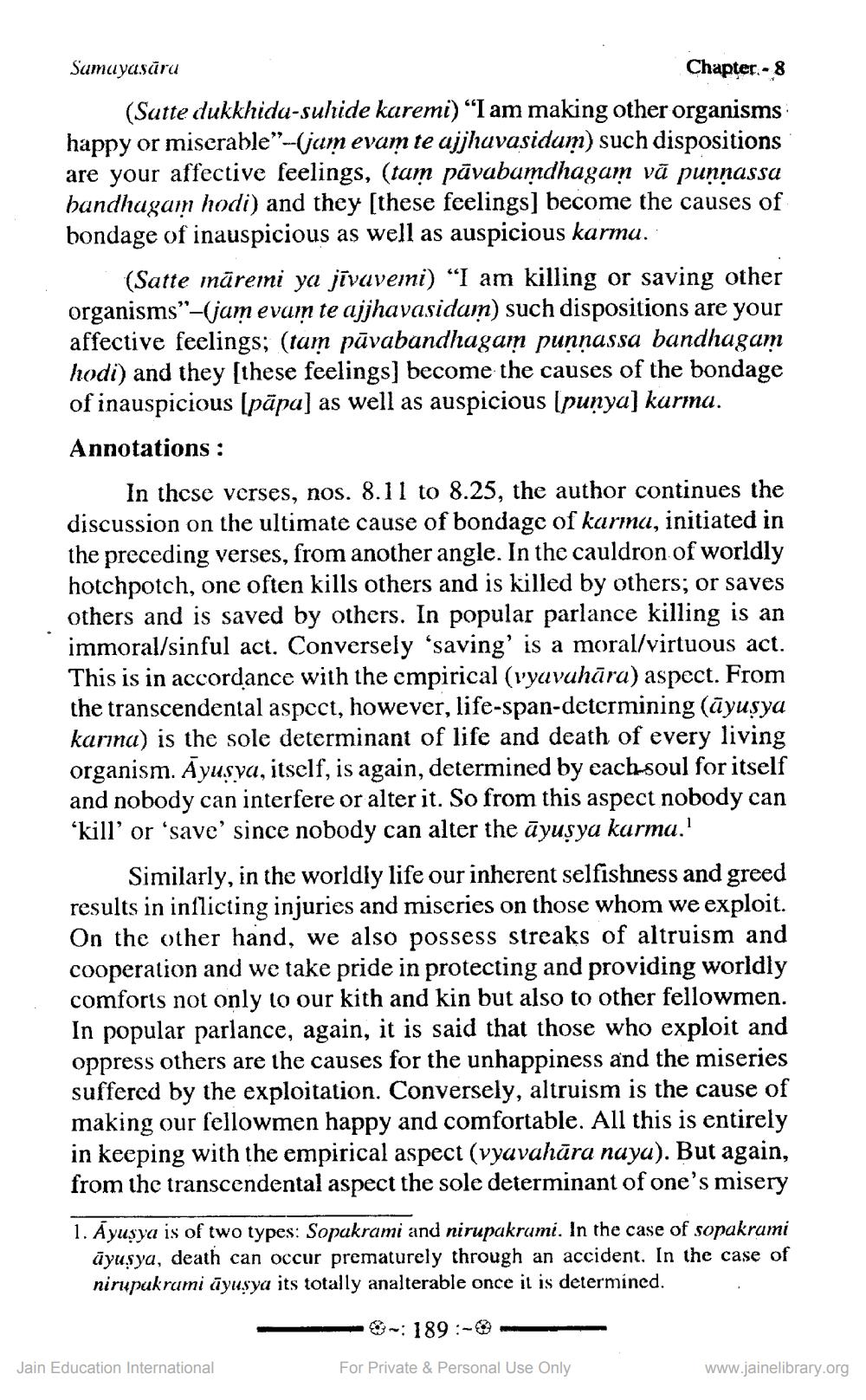________________
Samuyasáru
Chapter - 8 (Satte dukkhidu-sulide karemi) “I am making other organisms happy or miserable"-(jam evam te ajjhuvasidum) such dispositions are your affective feelings, (tam pāvabamdhagam vā punnassa bandhugam hodi) and they (these feelings] become the causes of bondage of inauspicious as well as auspicious karmu.
(Satte māremi ya jīvavemi) "I am killing or saving other organisms"-(jamevam te ajjhavasidum) such dispositions are your affective feelings; (tam pāvabandhagam punnassa bandhagam hodi) and they (these feelings] become the causes of the bondage of inauspicious (pāpa) as well as auspicious (punya] kurma. Annotations :
In these verses, nos. 8.11 to 8.25, the author continues the discussion on the ultimate cause of bondage of karmu, initiated in the preceding verses, from another angle. In the cauldron of worldly hotchpotch, one often kills others and is killed by others; or saves others and is saved by others. In popular parlance killing is an immoral/sinful act. Conversely 'saving' is a moral/virtuous act. This is in accordance with the empirical (vyuvahāra) aspect. From the transcendental aspect, however, life-span-determining (āyuşya karma) is the sole determinant of life and death of every living organism. Ayusya, itself, is again, determined by each-soul for itself and nobody can interfere or alter it. So from this aspect nobody can ‘kill' or 'save' since nobody can alter the āyusya karma.'
Similarly, in the worldly life our inherent selfishness and greed results in inflicting injuries and miseries on those whom we exploit. On the other hand, we also possess streaks of altruism and cooperation and we take pride in protecting and providing worldly comforts not only to our kith and kin but also to other fellowmen. In popular parlance, again, it is said that those who exploit and oppress others are the causes for the unhappiness and the miseries suffered by the exploitation. Conversely, altruism is the cause of making our fellowmen happy and comfortable. All this is entirely in keeping with the empirical aspect (vyavahāra nuya). But again, from the transcendental aspect the sole determinant of one's misery 1. Ayuşya is of two types: Sopakrami and nirupakrumi. In the case of sopakrumi
äyusya, death can occur prematurely through an accident. In the case of nirupukrumi āyusya its totally analterable once it is determined.
Jain Education International
For Private & Personal Use Only
www.jainelibrary.org




